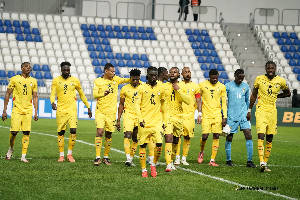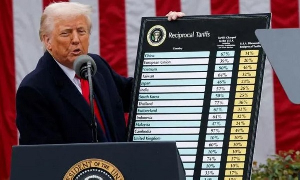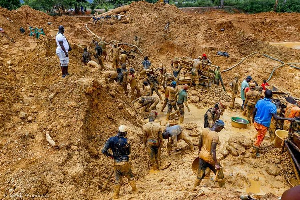The Kofi Annan International Peace Keeping Training Center (KAIPTC) in partnership with the United Nations Development Programme (UNDP) and funding from the Government of Japan is commencing a new one-year project to develop the technical capacity of maritime crime control officials in Cote d’Ivoire, Benin, Ghana, Liberia, Nigeria, Sierra Leone, and Togo.
The new project titled ‘Maritime Security Capacity Development for Safety and Security in The Gulf of Guinea’ is to promote effective implementation of relevant regional and international maritime protocols through research and capacity development, in order to control maritime crime including piracy in the Gulf of Guinea.
Commenting on the importance of the project, Ambassador of Japan to Ghana Himeno Tsutomu said “piracy attacks and other crimes such as robbery and kidnapping in countries along the Gulf of Guinea make the region’s maritime route unsafe and this requires technical capacity strengthening of maritime officials to help improve security in the region. The idea and objective of this project fit in well with the New Approach for Peace and Stability in Africa (NAPSA), which was advocated by H.E. Mr. Abe, Prime Minister of Japan, at TICAD 7 in 2019.”
The project will design courses to train about 90 personnel of national and regional maritime agencies including customs, marine and coastguard agencies, police, gendarmerie, national navies and marine observation centers of the Economic Community of West African States (ECOWAS).
The courses will integrate regional and international best practices, using legal and policy documents including the African Union’s 2013 Yaoundé Code of Conduct, which is seeking to help curb the incidence of maritime crimes in Africa.
“At KAIPTC, it is our hope that the training which is underpinned by research will support efforts at sharing information and building capacity of stakeholders to reduce insecurity within our maritime domain,” stated Major General Francis Ofori, Commandant at KAIPTC.
The new project will be complemented with a research to assess the nature and extent of maritime criminality in the Gulf of Guinea. It is expected to contribute to the achievement of the Sustainable Development Goals (SDGs), particularly SDG 16 on peace and strong institutions through its activity to combat maritime crime.
This will also promote SDG 14 that aims to conserve and sustainably use oceans, seas and marine resources for sustainable development by reducing illegal fishing.
“Maritime security is critical for economic activity and development. The rate of insecurity along the Gulf of Guinea requires urgent actions to combat piracy and other threats. Our continued partnership with KAIPTC and Japan is to improve skills, inter-agency working relations and cooperation among the security forces to fight criminality,” noted Gita Welch, the acting Resident Representative of UNDP in Ghana.
Piracy, robbery of ships at sea, oil bunkering, kidnapping for ransom, as well as drug and arms trafficking, are increasingly fueling violent disorder in the Gulf of Guinea.
According to the 2019 report of the International Maritime Bureau, the region accounts for 86% of crew taken hostage and nearly 82% of crew kidnappings globally despite drop in overall global numbers.
The maritime security capacity development project will strengthen the expertise of maritime officials and the research findings will inform policy directions on tackling maritime criminality in countries along the Gulf of Guinea.
General News of Tuesday, 5 May 2020
Source: 3news.com













